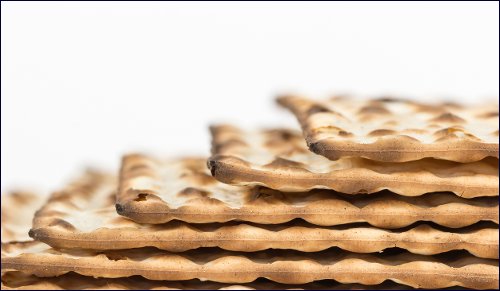 Iran’s Attack on Israel
Iran’s Attack on Israel


3 min read
4 min read
4 min read
5 min read
Every Jew is precious.
On Passover, we do not simply retell a story. We see ourselves as being the ones redeemed at this very moment. Here are four hidden messages to share at your table.
The Torah teaches us “And you shall tell your child on that day: it is because of this that God did for me when I came out of Egypt.” (Exodus, 13; 8).
We are commanded to speak about all that happened that night of leaving Egypt. The events that led to freedom, the bitterness of slavery, the fight for survival, even understanding how we ended up traveling down to Egypt in the first place, are all part of our Seder.
Even if you don’t have children, if you are all alone at the table, you must retell the story of the Exodus.
Every single soul must be reminded that God redeemed us from Egypt. And just as we have been redeemed in the past, we will once again be redeemed. Seder night is a time of hope. There is no soul that has sunk so low that it has lost its connection to its Source. Every soul matters. You are vital to the completion of our nation. Tell yourself the story; remember it well.
At the Seder we celebrate thousands of years of Jewish survival despite the fact that “In every generation they stand up and try to destroy us.”
We drink four cups of wine. There are many symbolisms in the number four but here is one of my favorites. Each cup is a hint to the four sources of virtue that ensured the future of our people.
If we desire to be a strong nation, despite persecution and exile, the key is not physical might or a strong army. Instead we must look at our spiritual reserves that parallel each cup of wine.
To survive we must hold onto our identity. More than sending a child to Hebrew school this means empowering ourselves and the next generation by living Jewishly. Ethics, kindness, character are all vital to family life but then there is the greatest classroom of all: Our home. I am saddened when I meet young people who are clueless when it comes to their Jewish identity. Parents who do not know how to transmit Judaism to the next generation simply because growing up it was not considered important enough. Or despite the knowledge, their Judaism has become another subject to do well in. The inspiration has gone missing.
Let us use the Seder as a springboard to reconnect with the beauty of our legacy. Let us rediscover the meaning of our Jewish names, the wisdom of our teachings and the values that have anchored us against the strong tides that pull us down.
God led us through the deep sea and the depths of the barren wilderness. Both share the quality of being uninhabited by humans. The message is most powerful.
We can create a dwelling place anywhere in the world. There is no home that is devoid of God’s presence if we so wish it. We should not allow past or present to make us feel bleak about our future. Some feel that they have gone too far or that negativity has overtaken them. Fear is paralyzing. Passover gives us the strength to believe once again in ourselves and our connection to God. We can establish our ‘mikdash me’at’, our sanctuary in miniature, no matter where we find ourselves. We begin the Seder with ‘kadesh’, from the language of ‘kadosh’, holiness. This is in our spiritual DNA.
We eat charoses, a sweet mixture made of apples, walnuts, wine and cinnamon. Charoses symbolizes the mortar used by the Jewish nation to make bricks while enslaved.
But there is also a deeper and most beautiful meaning to the apples on our Seder plate.
Charoses symbolizes the apple trees under which the Jewish women gave birth. They concealed their pain so that they would not be detected by the Egyptians. The slavery and suffering had stripped the men of hope. They separated from their wives and thought that bringing children into such a dark world was pointless. It was the women who never gave up. They chose to give birth beneath the apple trees which first produce fruit and then protective leaves. They declared with perfect faith that they would do the same. First they would give birth to their fruit and undoubtedly they would be sheltered from Above.
The women sweetened the bitterness of harsh slavery. When tasting the maror we dip it into some charoses to remember this courageous message. Life is both bitter and sweet. The bitter is tempered through hope. Faith keeps us going.
This Passover, engage yourself and engage those around you. Tap into the meaning of the Hagaddah and free yourself from all that has bogged you down. Raise your Seder plate and lift yourself higher. Celebrate the birth of our people.
